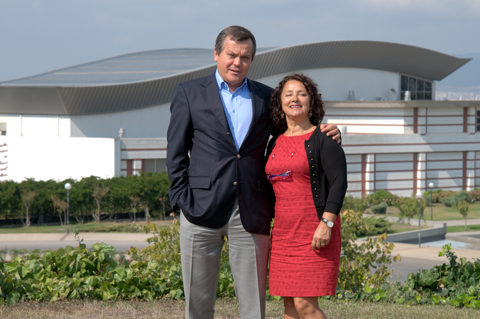Wednesday talks with Nesrin Balkan
Haluk Bal: "Secretary-General of Eternal Youth"
Haluk Bal: “There are great moments that define one's life. It was a sea accident that defined mine. Being admitted to Darüşşafaka was a turning point for me. I was there for eight years and we received an excellent education. I don't even want to think about what I would have done if I hadn't studied at Darüşşafaka. We had limited means; I would have gone to a regular school in Karamürsel and had a very different life.”
My first guest in the new academic year is Secretary-General Haluk Bal, one of the top executive directors of the university. He is known to all students, faculty and employees around the campus with his beaming smile, upbeat demeanor, and warm conversations that he enjoys. He had made quite a first impression with his looks. I still remember a colleague of mine saying: “Did you see the new secretary-general? He's gorgeous, like Alain Delon!”
We spoke with Haluk Bal on the unknown aspects of his personality, what running a university is like, his relationships with faculty and students, and his past work experience. Haluk is more than the Sabancı University Secretary-General to me, as we go way back with a personal connection. Interviewing Haluk Bal was a great experience for me. The second chapter will be available next week.
You have been the Secretary-General of Sabancı University since February 2005. Soon it will be nine years. How has your time in the university been?
I started on a snowy February morning. You can never keep up with time, but my years in the university were really a blur. I don't know if this is also true for you and your friends. All companies have some recurring events. This is more pronounced in universities. The commencement, for example, is always in the last week of June. Admission exams, academic years, traditional events like the Sakıp Sabancı conference series, International Board of Overseer meetings... They all have recurring schedules. I think that makes me lose track of time in the university. It was quick, but it was fun Nesrin. Most of the time.
Let's go back to basics: your childhood. You and my older brother were classmates in Darüşşafaka. Being Darüşşafaka mates is closer to being brothers as you lived in the same dormitories and ate in the safe cafeteria for eight years; you have thousands of memories together. Darüşşafaka was home to you. So we go way back. Besides, we lived on the same street in Beşiktaş. That's why you and I are not just "friends from work". I was proud when they told me "Haluk Bal is the new secretary-general".
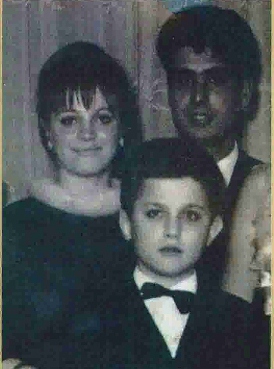 |  |
I remember the time you were born. You can't really go further back than that. Meeting here was a delightful surprise. To begin with: I was born in Karamürsel in October 1954. My mother's family are Bosniac immigrants. They moved to Karamürsel from Sarajevo in the early 1900s, when my grandmother was 13 or 14 years old, and settled in the village of Semetler. They actually were the first settlers there. My mother was born in the village of Semetler. My father's family are locals. Now I don't care much for genealogy, but my late uncle was Mayor of Karamürsel in the 1940s and had access to archives, so he made a family tree. I still have a photocopy. According to that, my father's lineage goes all the way to Sheikh Edebali, who was a major influence in the foundation of the Ottoman Empire. My wife Buket is used to my jokes that she is "speaking to a member of the Ottoman court!" I had four brothers and sisters. Our lives changed on the first of March, 1958, with what is known as the "Üsküdar Disaster." People around 60 may remember: A ferry named Üsküdar that carried passengers between Karamürsel and Kocaeli sank in a storm, and I lost my father and a sister there.
So you were orphaned at the age of three and a half.
There were now four of us: two boys and two girls, the oldest being my 12-year-old sister. I am the youngest. My brother is four years my senior. And we have a sister who is older than him. My mother, may she rest in peace, passed away in 2002. Everyone loves their mother dearly.
Of course.
But my mother was something more: She was an uneducated, illiterate woman in Karamürsel, in 1958, and she was suddenly widowed with four children. She was a smart woman and her sacrifice knew no bounds. Few girls would go to high school in Karamürsel those days. Both my sisters did; in Karamürsel and Gölcük. My brother attended the teacher school. We were all educated. My mother never married again, and did all she could so that we could go to school.
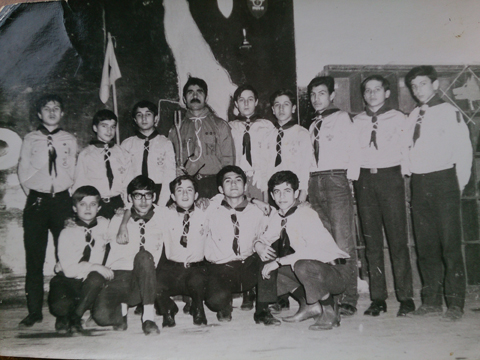
I started at Darüşşafaka in 1965, and that's when I met your late brother Ersin and your family. We were in the boarding section of Darüşşafaka for eight years, until 1973. There are life-changing moments, some good and some bad, that leave a lasting effect on you. I was too young to have a clear memory of my father's death, but the blow jarred the rest of my family. My mother did her best to ensure I didn't lack for a father as I grew up. I was mostly isolated from difficulties in the family, especially money matters. One of our relatives told us that children who had lost their fathers had priority in admittance to Darüşşafaka, and I took their admission exam. Being admitted to Darüşşafaka was a turning point for me. The eight years I studied there changed my life dramatically. We received an excellent education at Darüşşafaka. I don't even want to think about what I would have done if I hadn't studied there. We had limited means; I would have gone to regular middle and high schools in Karamürsel. I would have had a basic education and very different life. But thanks to Darüşşafaka, I learned a second language very well. More importantly, the school raised and cared for us for eight years, without expecting any money in return. Just like family.
So they embraced you.
They really did. I graduated in 1973. Us Darüşşafaka graduates have strong bonds. Spending eight years of your lives as children develops a sense of brotherhood among friends. You each become a member of a large family that opens its arms to talented and intelligent children from all around Turkey, who have limited financial means. You have a lot in common; your backgrounds are similar. So you make friends for life.
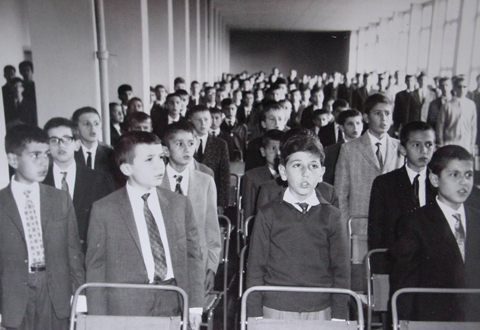
Where did you continue your education after Darüşşafaka?
I took the university exam. Our class in Darüşşafaka had all been admitted to the best universities. Our scores were so high that we could pick and choose to our liking. I was torn between Boğaziçi and other universities because I could even go to medical school with my score and Boğaziçi didn't have a medical school. I didn't know what I wanted and I had no one to guide me. Encouraged by my friends, I chose Boğaziçi University Mechanical Engineering and took the proficiency exam. I failed that exam despite my Darüşşafaka English, so I would have had to attend the preparatory year. I wasn't happy with that so I told no one. Besides, I wasn't really sure it was what I wanted to do. We had socialist tendencies, uninformed as they were. So in the end, I decided that Boğaziçi was too much of a rich kids' club for a person of my humble background, and enrolled in the Istanbul University Business School, which had just been opened and did not have any graduates yet. I'd heard it from someone.
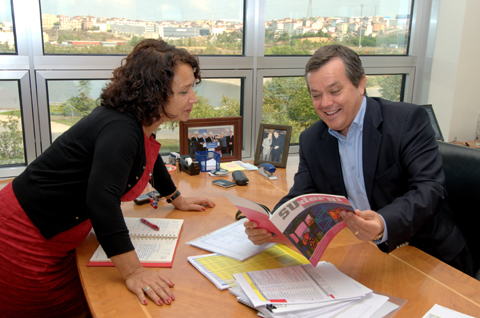
One decision leads you to an altogether different direction.
Exactly. That is why the Sabancı University system is the right one for students. It would have been great if we had had the same opportunity to choose our program at the end of two years. No university offered that at the time.
It could have taken you to yet another direction.
On the other hand, I'm so happy with my life that I'm glad it didn't happen in any other way. I was fortunate to go to Darüşşafaka; then I went to the Business School. My university years, the second half of the '70s, was one of the worst periods in Turkey's history. I sometimes go back to my old school, the Istanbul University campus in Beyazıt, on a tour of nostalgia. We love the old city, but it was a hotbed of political strife at the time. The school was the epicenter of political power struggles. I was able to complete my first year in the '73-'74 academic year. Then came the time of long school closures. There was no school, and I needed money, so I decided to work. An acquaintance told me that IBM was recruiting. I started a one-month internship in the summer of 1973. And I ended up working there for 30 years.

Talk about consistency!
At the time, multinational companies like IBM were the best employers; they offered excellent training. They had the strength to train and invest in lifetime employees. Then, of course, competition came along and the world changed. Companies no longer fund extensive education. With few exceptions, IBM was the ideal place to retire from. So my employer was the consistent one, not necessarily myself. It was a great time. They called me three months after my internship - they had liked me, obviously. They needed an accounting clerk for three months. School was closed anyway, so worked for three months, followed by another six months. I worked at IBM on and off, depending on whether school was open, until I graduated in 1978. After I graduated, I worked as the administrator of a journal published by Professor Mustafa Aysan, one of my favorite professors in the university. He offered me, a rookie graduate, the directorship of a journal published for the financial sector. This may be second nature to you, but I'd never seen the inside of a printing house or magazine office, yet I did it. I was right on Babıali street in Cağaloğlu, where all the press was. I even carried a press card.
What happened after that?
Based on advice from my professors, I went to Toronto, where my sister lived, for a graduate degree. But I returned to Turkey to not miss an opportunity for completing my compulsory military service in four months. Then, I started as a full-time administrative employee at IBM. I was first in accounting and administrative affairs, but then transferred to sales, which was much more suitable to my personality, and a great decision. I was a sales representative, marketing manager and sector manager for years, and finally became the sales director and general manager of Sabancı-IBM partnership I-BİMSA before joining the university. Which was out of the blue, so that's another story.
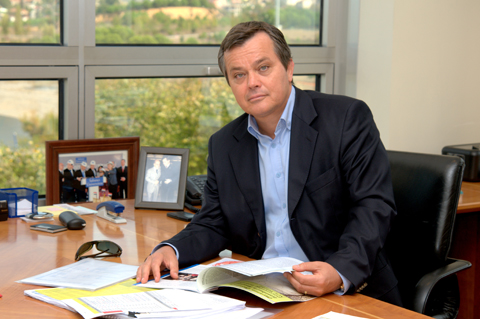
A handful of major incidents punctuated your life: The Üsküdar Disaster and the loss of your father; going to Darüşşafaka; choice of university; military obligation...
But I've always made quick decisions, that is a habit of mine. The outcomes were mostly good. Let me put it this way: Starting in 1973, on and off, it's almost 32 years. Staying with a company for so many years... That's what IBM was like. I was never bored working there. Departments like sales and marketing are especially busy. Sectors change, regions change, you are promoted, and 30 years have gone by.
This must have had to do with the sector being new. Technology was advancing rapidly at the time and was one of the best businesses.
Correct; I was in the company when IT was receiving massive investment in Turkey and around the world, and it was a time of profitable growth.
Can you say you were lucky in your career?
Definitely. I admit that I was very lucky.
Great. Then, you switched to a whole new field, the university. It is a remarkable change to be the secretary-general of an institution that has a unique system, like Sabancı University.
I must say it was beyond my wildest dreams.
While I was the general manager of I-BİMSA, Sabancı Holding decided to divest its information technologies assets from the end of 2004, and withdraw from this partnership. When the divestiture was complete, I was back in IBM. This was in November 2004. This resulted in the longest, most pleasant holiday of my life. But IBM were unprepared; they didn't know what to do with me. IBM's general manager at the time was from my class, and a colleague for many years. They gave me a nice room. I was an advisor to the sales team for a short while.
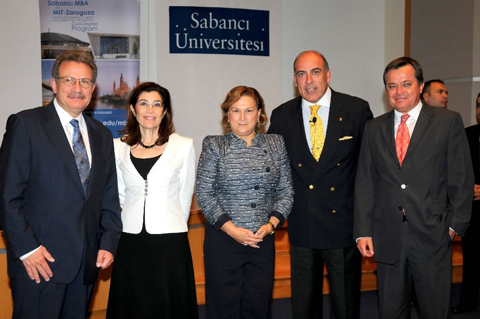
Before 2004 was through, Güler Sabancı called. She was president of the Holding's Tire Reinforcement Group. I-BİMSA was part of that group as well, so she was our top executive. You will remember that the university's Founding Secretary-General Hüsnü Paçacıoğlu was also at IBM before joining the university. So Hüsnü Ağabey and I came to this position from IBM.
I guess it's safe to say that "IBM trains secretary-generals for Sabancı University”.
That turned out to be the case, yes. I think Hüsnü Paçacıoğlu put in a good word for me. Güler Hanım mentioned that I should talk to Tosun Bey. I'd heard of him, but had never met Tosun Bey. So I came to the university, met with him, and was told that the university needed a new secretary-general. It was a meticulous process as this is a major executive position in the university. I spoke with Tosun Bey, I met several times with Ahmet Aykaç, and finally, I spoke with Güler Hanım. I also met with Hüsnü Ağabey. That concluded the process and my Sabancı University days began
.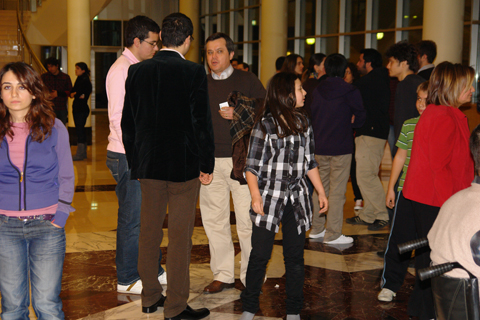
Secretary-General of Sabancı University is an important position that bears much responsibility. All staff other than faculty members report to you. It's not unlike managing a town of five thousand. Meeting needs, making efficient use of resources, ensuring that the system works smoothly... And then there are the stakeholders of the university. How was the adaptation from the management of a for-profit company to the university environment?
The academic world has an entirely different reality and dynamics of its own. First of all, there is no profit involved, and the social responsibility aspect is dominant. The work we do here benefits the whole of Turkey and the world, so there can be no comparison to a business. On the other hand, the administrative and organizational aspects of the institution are professionally designed and implemented at Sabancı, so the transition from the general management of a marketing-oriented company to the general secretariat of a university like this wasn't a contradiction. Sometimes students are critical that the university is "run like a business". I tell them, of course we don't intend to make a profit, but our resources aren't infinite. We strive to use them as efficiently as possible for all students and faculty. As for administrative tasks, I was already experienced in human resources, finance, promotion and marketing--which you know has been growing for a while, institutional communication and development, so I had no difficulty adjusting. As for Information Technologies, it was my bread and butter.
When I was at I-BİMSA, we sold and installed SAP and other software to the university; I was already familiar with it. The functions that are strangers to me are the Information Center and student resources. I didn't have much of an idea about the dynamics of an information center. As for student resources, it is specific to the university. I had things to learn, regulations and legislation to enforce. Yet I think we overcame the difficulties in short order. Sabancı University was good for me, but maybe I was good for Sabancı University as well--maybe you are in a better position to answer that.
To be continued...
